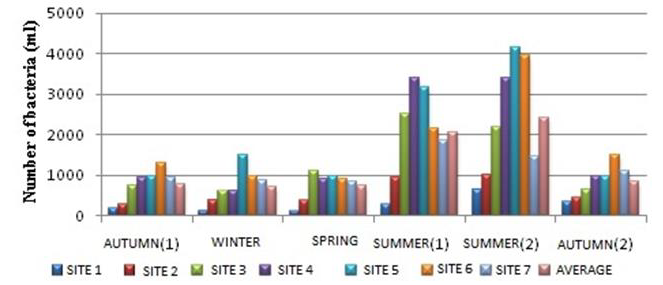The impact of climatic factors on bacterial indicators of freshwater quality
DOI:
https://doi.org/10.17762/sfs.v4i1.138Keywords:
Climatic factors, Bacterial indicators, fecal pollution, Freshwater qualityAbstract
Most of microbial pathogens present in natural waters are of fecal origin. Thus detection of fecal contamination is the main aim of water quality monitoring. Routine bacterial indicators of fecal contamination are: the coliforms, fecal coliforms, fecal streptococci, Clostridium spp and Pseudomonas aeruginosa. The present study aimed to determine the impacts of climatic factors on concentrations of these bacterial indicators and evaluate their assesability for biomonitoring of natural freshwater ecosystems. The study was conducted on the river Neretva, a karst river in southeastern Bosnia and Herzegovina. The water was sampled at seven selected sites at bimonthly intervals, from October 2015 to October 2016. Bacterial counts were found to be high during all tested seasons. All indicators showed a similar pattern of concentrations with the highest counts during summer. The counts were also increased in winter, while the decrease of values of all tested parametres was noted in spring. The lower water temperatures were not shown to cause a significant decrease of bacterial counts. Seasonal variations were pronounced, however data should be interpreted with caution whilst taking into account natural climatic oscillations and hydrological characteristics. Further studies should examine correlations between fecal indicator bacteria and possible concurrence with other pathogens.










